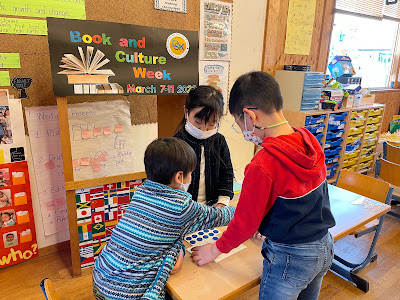Let the children teach us something new about things that we (think) already know...
- Ms. Faye -
Sorting Out
Moving forward in our unit, the Preschoolers started putting ideas to answer big questions.
The 3 Key Concepts: change, perspective and connection help the students be guided towards deeper understanding of the central idea. They brainstormed ideas about their knowledge of the 3 key concepts.
As a class, we came up with a definition for each:
Change: From one thing to another; not the same
Perspective: What we think might be different from what others think
Connection: Things that are the same as others; Like a line - one point is connected to the other point.
After, they answered the prompt questions. They provided personal examples for each key concepts. They will continue adding on to this visual tool until as they continue with the sorting out stage of the Inquiry Cycle.
As inquirers who ask questions, group discussions and collaboration is a common scenario inside the Perky Preschool classroom. They always communicate and share ideas to everyone and learn from each other.
This allows them to be open-minded to other student's ideas. This gives them the opportunity to reflect and develop as they formulate their own ideas upon hearing from many different perspectives.
Literacy Integration
From the timeline of their developmental milestones, they wrote their biography. They went through the Writing Process of: planning, drafting, editing, rewriting, and soon they will be publishing!
Numeracy Integration
They manifest themselves as communicators across all subject areas. They discuss, agree and disagree with others - together come up with one answer to questions given to them.

"As a teacher, I often step back, watch and let them explore things and learn with each other. It is a beautiful sight to see how each students, grow and develop, not only with ideas but relationships with others." - Ms. Faye








Comments
Post a Comment